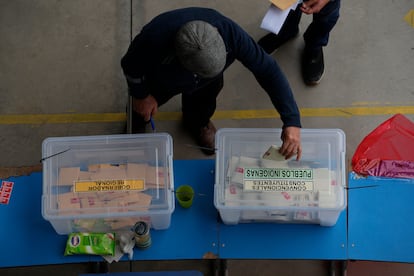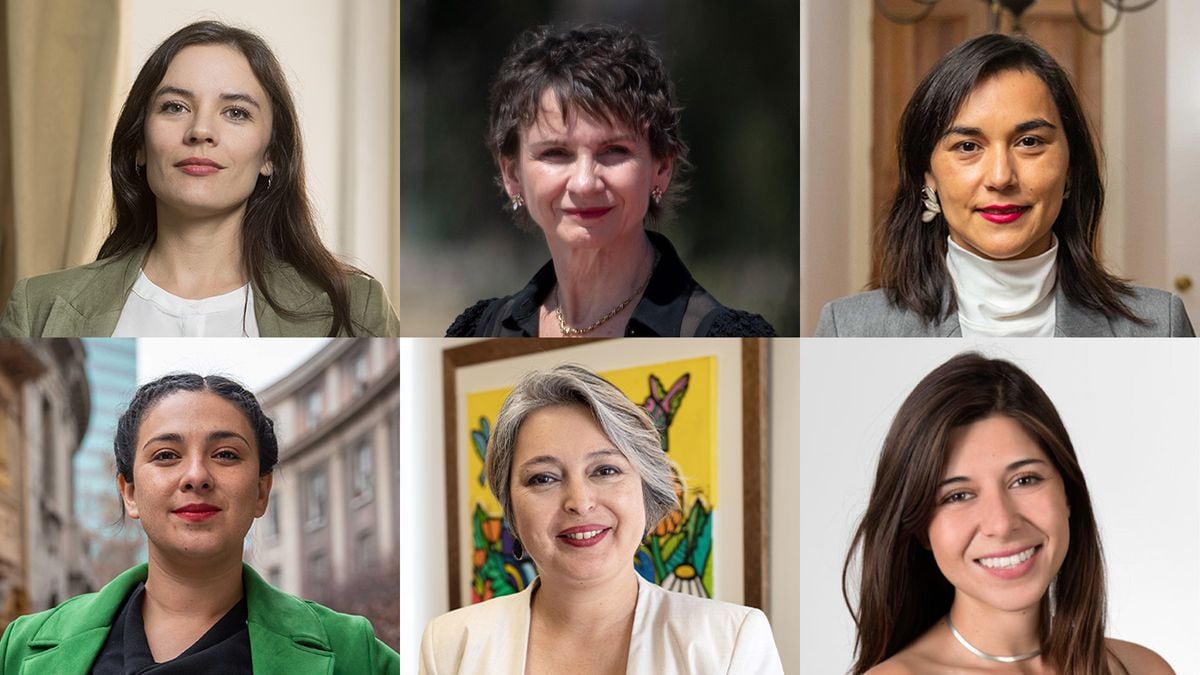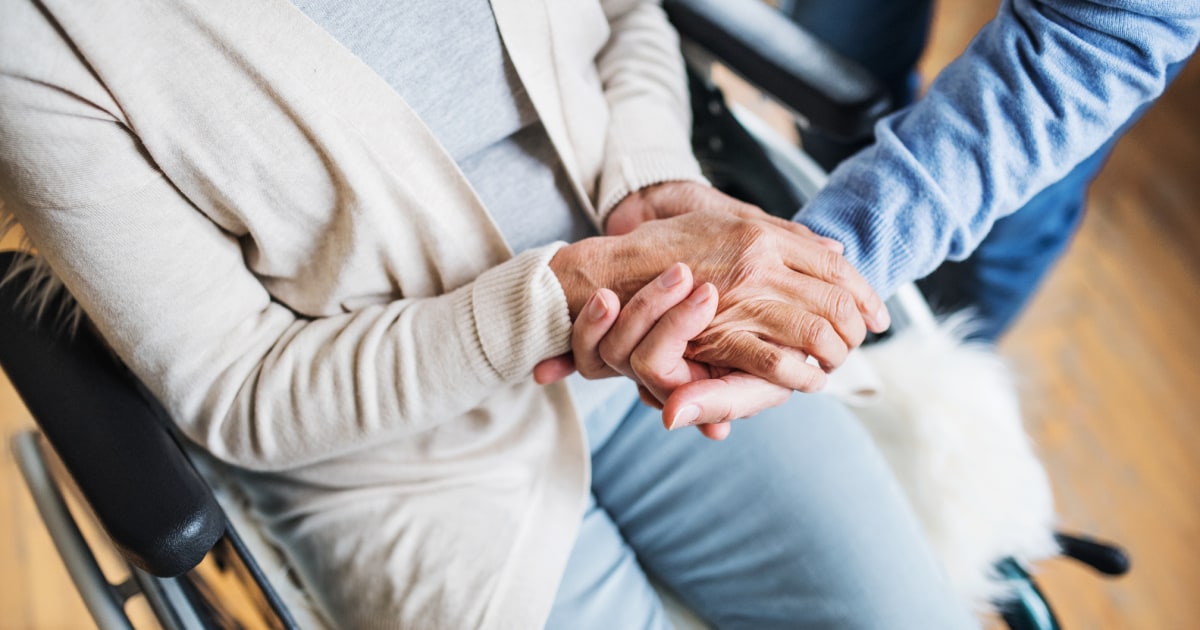A Chilean casts his vote in the election of the drafters of the new Chilean Constitution.Esteban Felix / AP
Chile is experiencing a historic moment, is the phrase that is repeated in the media and social networks in recent days. And it is true, we find ourselves in those moments when, in the context of a multi-dimensional crisis, the course of our history can change profoundly, or perhaps follow the pattern of development in which we came. And that feeling of living a historical moment produces different emotions, where hope predominates, after months in which anger and indignation mobilized thousands of Chileans in 2019 to demand a profound change to the development model and the political system.
Despite the fact that for a long time the studies on politics did not include the field of emotions - because they were considered irrational - various intellectuals have given it relevance in recent decades. Robert Dahl (2006) states that the desire for political equality is a basic premise of democracy, and the motivations of people to change the status quo to achieve said political equality, encompasses a wide field of emotions, from altruism, compassion, empathy and sympathy, even envy, hatred, rage and indignation. Therefore, emotions have a respectable role in politics. Martha Nussbaum (2014) posed the question why is love important to justice? And he points out that political emotions - those towards the public - are very important for the development of institutions.Emotions can serve as a motor to create just institutions and to improve them. Furthermore, when the latter embody the intuitions and experiences conveyed by positive emotions, they facilitate the experimentation of those same emotions.
According to the results of a survey carried out by Ipsos and Espacio Público in March 2021, the constituent process evokes positive emotions in the majority of the population, with hope (52%) being the one that achieves the greatest association among those surveyed, followed by joy ( 46%). In the same sense, the academic Kathya Araujo stated that the result of the plebiscite, despite the fact that half of the electoral roll voted, reflects an inflection of hope.
And hope is present because for the first time in our history we will write a democratic and inclusive Constitution, in a Constitutional Convention that will be joint, with seats reserved for indigenous peoples and participation of political parties alongside independents. Getting to this point has been a long road and not without difficulties. The current constituent process in Chile is the result of a broad social agreement of constitutional change that was expressed in social struggles since 2006 and that had its greatest expression in October 2019, where massive protests and acts of violence paralyzed the country for more than one month. This process also has a political antecedent.In 2016, President Michelle Bachelet summoned citizens to a constituent process based on citizen dialogues that showed us the willingness of citizens to participate - more than 200,000 people participated in instances of deliberation -, and a new social agenda that already expressed the profound change that we live as a country. However, the political agreement was not reached so that these citizen dialogues were transferred to a deliberation in a specific constituent body, and with the change of government in 2018, the process was suspended.The political agreement was not reached so that these citizen dialogues were transferred to a deliberation in a specific constituent body, and with the change of government in 2018, the process was suspended.The political agreement was not reached so that these citizen dialogues were transferred to a deliberation in a specific constituent body, and with the change of government in 2018, the process was suspended.
The broad political agreement only crystallized in November 2019, as a result of the social mobilizations in October of that same year. The Agreement for Peace and the New Constitution was signed by 11 of the 17 parties with representation in Congress, which allowed reaching the 2/3 quorum required by the constitutional reform to call a plebiscite for the constitutional change. Citizens ratified the democratic path with 51% participation in the constitutional plebiscite of October 2020, where 80% approved the drafting of a new constitution through a Constitutional Convention.
That the Constitutional Convention was inclusive was a second battle of the social forces in the framework of the legislative debate. The legitimacy of the constituent process is played not only in the election of the conventional ones, but also that this body manages to represent the diversity and possibility of change on which hope is based. In March 2020 the legislation for parity of the Convention is approved, and in December 2020 the law on reserved seats for indigenous peoples is approved. These democratic innovations are the new rules of the game that allow the inclusion of new actors, and this was reflected in the large number of registered candidates for the Constitutional Convention. A study by the Nueva Constitución Observatory shows that among the 1,468 candidates for 155 seats, there is a diversity of profiles,where 77% of candidates have no prior political or public experience. The programs presented by the candidates for Conventionals include a new agenda, and it is seen that the debate is oriented towards a more just, democratic and inclusive society.
In moments prior to attending my polling station, I am overwhelmed by the emotion that for the first time I will find myself in front of a ballot that will have a balance of female candidates alongside male candidates. And memories come back to me, of listening to my grandmothers telling their stories of participation in the suffrage movement at the beginning of the 20th century, when the demand was the right to vote. Listen to the memories of my mother and aunts about the dictatorship, the fight for democratic recovery and the role of women in that process, to expand our rights and freedoms. I remember when in 2006, we put on the presidential sash and went with my daughter to celebrate in the streets the triumph of the election of the first female president of Chile.I also reflect on the work we carried out together with social and political leaders for the quota law in 2015, in a government led by Michelle Bachelet, and for the parity achieved in 2020 after a broad mobilization of feminist and women's organizations. And that fills me with hope. Also knowing that indigenous peoples will have their own green ballot, and 17 seats to represent their ideas and proposals in the Constitutional Convention.
What is distinctive and significant about this process is that it is up to us, citizens, to define that future.
In a couple of days we will know who the 155 people who will represent us will be.
Constituent Constituents will have the challenge of constructing agreements for a new social pact, where they can establish mechanisms for citizen participation during constitutional deliberation, and the necessary transparency to rebuild trust.
Democracy, as Martha Nussbaum puts it, is built with the love of good, with the hope of a better future, as a wall against hatred and rage.
Pamela Figueroa
has a doctorate in American Studies, an academic at the University of Santiago (USACH), and the Academic Coordinator of the Nueva Constitución Observatory.




/cloudfront-eu-central-1.images.arcpublishing.com/prisa/XUMBJ34VOBACVCGU5L34VTE7NQ.jpg)




